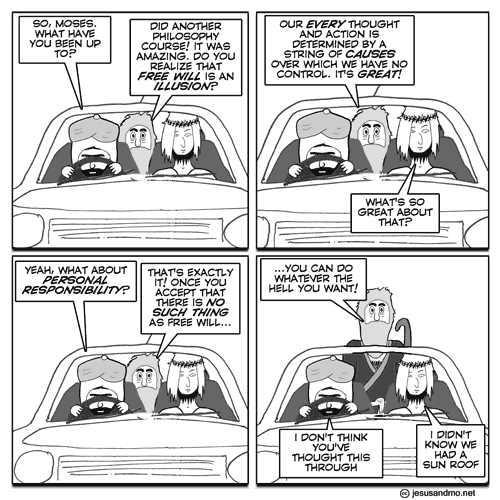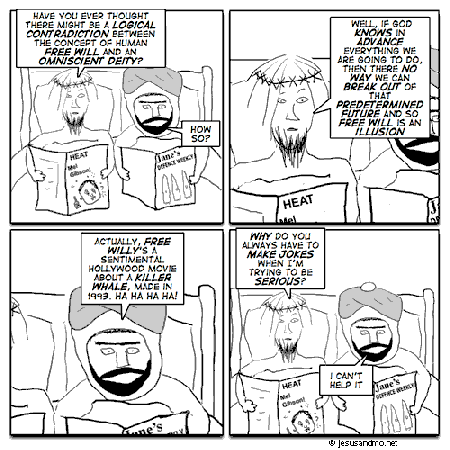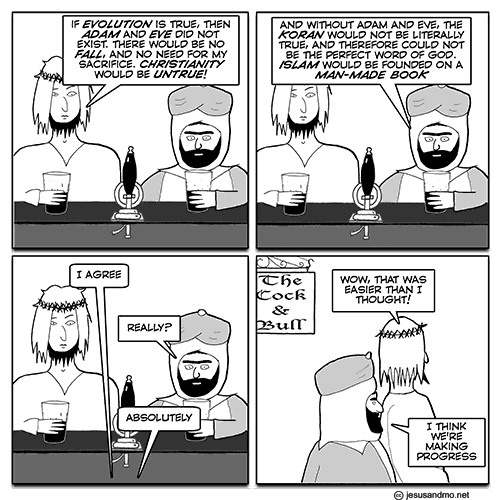1,(T/F) Augustine was a chaste and pious youth, converting to Christianity while still a boy. LH 35
2. Augustine's early "Manicheaean" solution to the problem of suffering was to claim what about God? LH 37
3. Augustine's later solutions were the Free Will Defense and what? LH 39


4. In contrast to Kantian deontologists and utilitarian consequentialists (concerned mainly with the rightness or wrongness of particular acts) what do Aristotelian virtue theorists focus on? P 53
5. A Christian moralist inclined to follow the Commandments without exception might nonetheless feel conflicted about "lov[ing] thy neighbor" in the event of what end-of-life situation? (That is, what scenario or possible action might create a conflict?) P 56
6. The view that facts and values are distinct and separate is associated with ____'s Law and _____'s Fallacy (name at least one, for full credit). P 59
BONUS: ______s are sometimes accused of inconsistency, claiming absolute truth for the view that all judgments are relative, while ______s say all ethical statements are literally meaningless. (Name at least one.) P 63
BONUS+: Which cartoon character (in my dawn blog post on Augustine) says free will is an illusion?
DQ:
1. Is it better to embrace (or renounce) religious faith early in life, or to "sow your wild oats" and enjoy a wide experience of the world before committing to any particular tradition or belief? Were you encouraged by adults, in childhood, to make a public profession of faith? If so, did you understand what that meant or entailed?
2. Does the concept of a never-ending struggle between good and evil appeal to you? Does it make sense, in the light of whatever else you believe? Would there be anything "wrong" with a world in which good was already triumphant, happiness for all already secured, kindness and compassion unrivaled by hatred and cruelty?
3. Do you find the concept of Original Sin compelling, difficult, unfair, or dubious? In general, do we "inherit the sins of our fathers (and mothers)"? If yes, give examples and explain.

4. Is it more important to you always to do the right thing, or always to act consistently with your values? Do those always coincide?
5. What's your view of euthanasia? Would you ever seek to end a loved one's physical suffering if they were dying painfully of an untreatable condition, with or without their instruction?
6. Can you get an "ought" from an "is"? Why or why not? If yes, give an example.
No comments:
Post a Comment
Note: Only a member of this blog may post a comment.